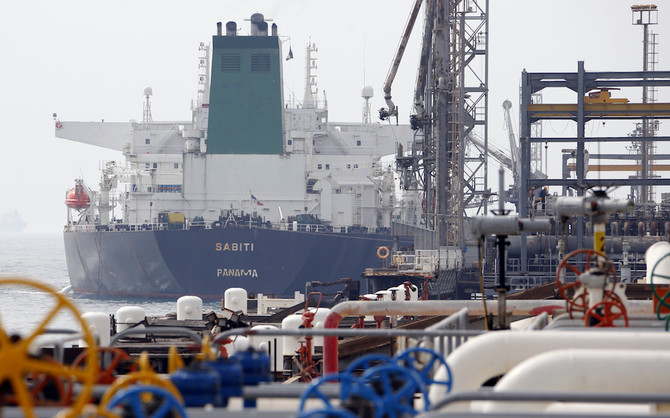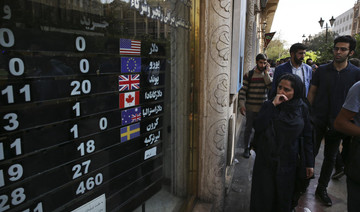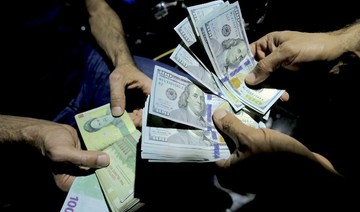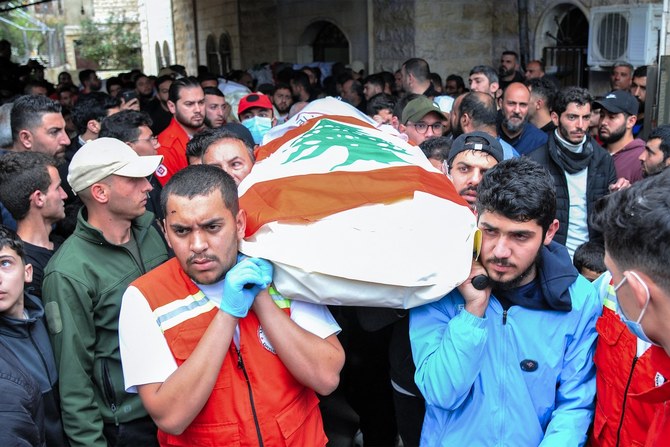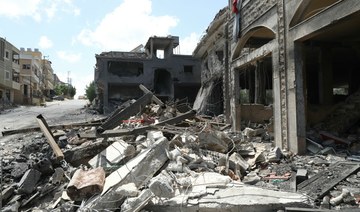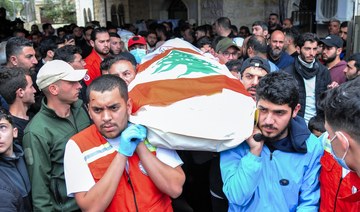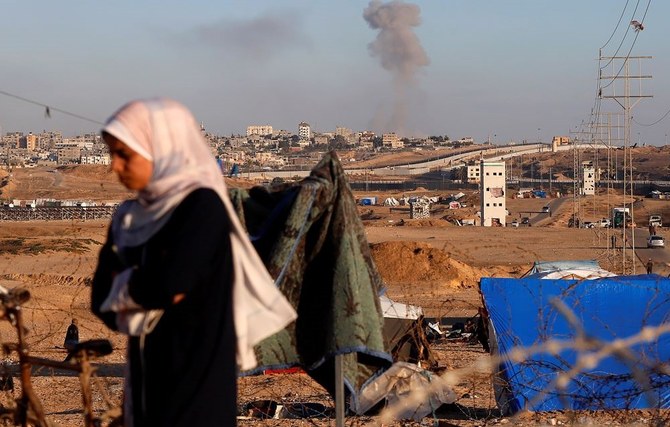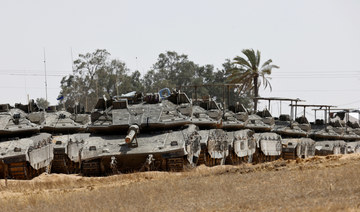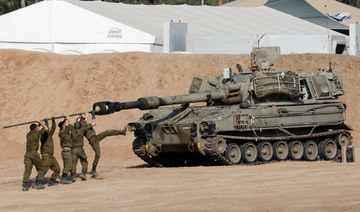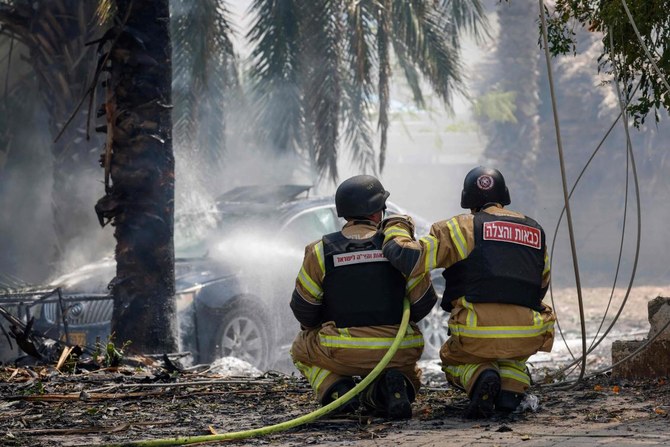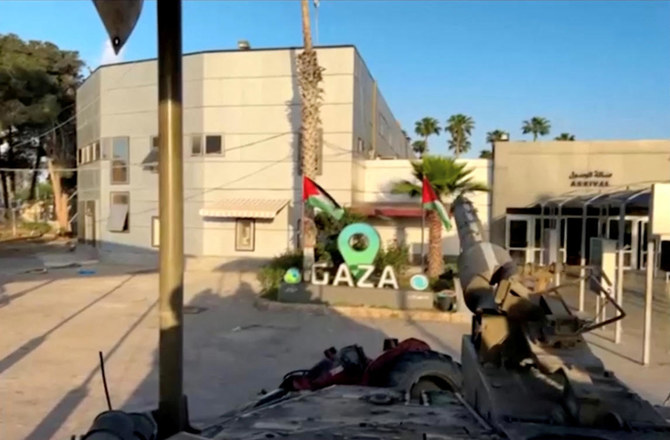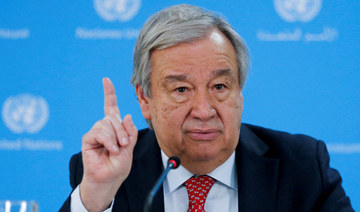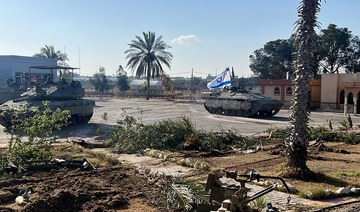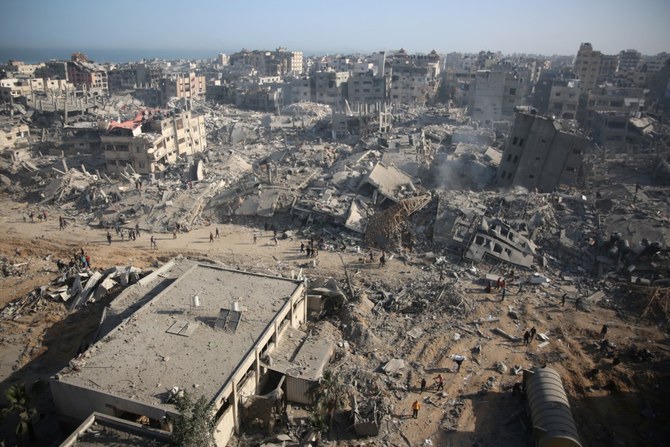LONDON: A raft of new US sanctions against Iran were announced on Friday, as it emerged that eight territories have been temporarily exempted from restrictions on importing oil from the country.
The move means all the sanctions on Tehran that had been lifted under the 2015 nuclear deal have been reimposed. The second wave of sanctions, that will come into force on Monday, cover Iran’s shipping, financial and energy sectors.
The US will add 700 Iranian individuals and entities to its blacklist and also pressure the global SWIFT banking network to cut off Tehran, US officials said.
Donald Trump said Iran was going to take a very big hit from the sanctions after earlier posting a Game of Thrones - style image with the words “Sanctions are Coming.”
— Donald J. Trump (@realDonaldTrump) November 2, 2018
The aim is to pressure Tehran to halt its nuclear activities and support for terrorism in the region, Secretary of State Mike Pompeo said.
“Our ultimate aim is to compel Iran to permanently abandon its well-documented outlaw activities and behave as a normal country,” he added.
The new measures come six months after the US president withdrew from the 2015 nuclear deal struck between world powers and Iran.
Pompeo said the US will grant exemptions to eight “jurisdictions” that have pledged to, or have already, cut back on purchases of Iranian oil.
He did not name them, but they include India, Iraq, Japan, South Korea, and possibly China, according to reports. Turkish Energy Minister Fatih Donmez confirmed that Turkey had been told it would be granted a waiver.
------
READ MORE:
OPINION: Sanctions on Iran may be tricky to enforce
------
The US told Iraq that it will be allowed to keep importing gas, energy supplies and food items from Iran, Reuters reported. The waiver is conditional on Iraq not paying Iran for the imports in US dollars. Iraq’s economy is deeply entwined with Iran.
News of the waivers pushed oil prices down by about 1 percent on Friday, amid investor concerns over oversupply.
Iran said that it had no concerns over the reimposition of sanctions. “America will not be able to carry out any measure against our great and brave nation ... We have the knowledge and the capability to manage the country’s economic affairs,” Iran’s Foreign Ministry spokesman Bahram Qasemi told state TV.
France, Germany, Britain and the European Union, which are all trying to save the nuclear deal, issued a joint condemnation of the US move.
“We deeply regret the reimposition of sanctions by the United States stemming from their withdrawal from the Joint Comprehensive Plan of Action," the statement said.
The deal was aimed at limiting Iran's nuclear capabilities in exchange for sanctions relief.
Peter Kiernan, lead energy analyst at the Economist Intelligence Unit, said there were fears that a complete shut off of Iranian oil exports could “cause a spike in prices and leave oil-consuming economies scrambling to buy oil elsewhere.”
He added: “Saudi Arabia may be able to partially offset substantial Iranian supply losses, but not completely, leaving the market extremely vulnerable to a supply interruption from another source.
Therefore to some extent the Trump administration has had to show to some flexibility as larger oil buyers such as India and China especially have been unwilling to immediately cease all purchases from Iran.”
David Butter, associate fellow for the Middle East and North Africa program at think-tank Chatham House, said that the waivers mark a “limited reprieve” for Iran.
“The waivers are only a partial concession as proceeds of sales would go into escrow accounts that would be used solely to finance Iranian imports from the buyer of the oil,” he told Arab News.
“The US appears to have judged that the costs of refusing waivers would be too high in terms of impairing relations with major countries and driving up oil prices.”
Robin Mills, CEO of Qamar Energy, a consultancy based in Dubai, agreed that the waivers were designed to stop oil prices soaring.
“I don’t see this as a sign of softening (on the part of the US), but as an acknowledgement that some countries are determined to continue buying Iranian oil and that the oil market would suffer from too sharp a withdrawal, leading to uncomfortably higher prices,” he told Arab News.



